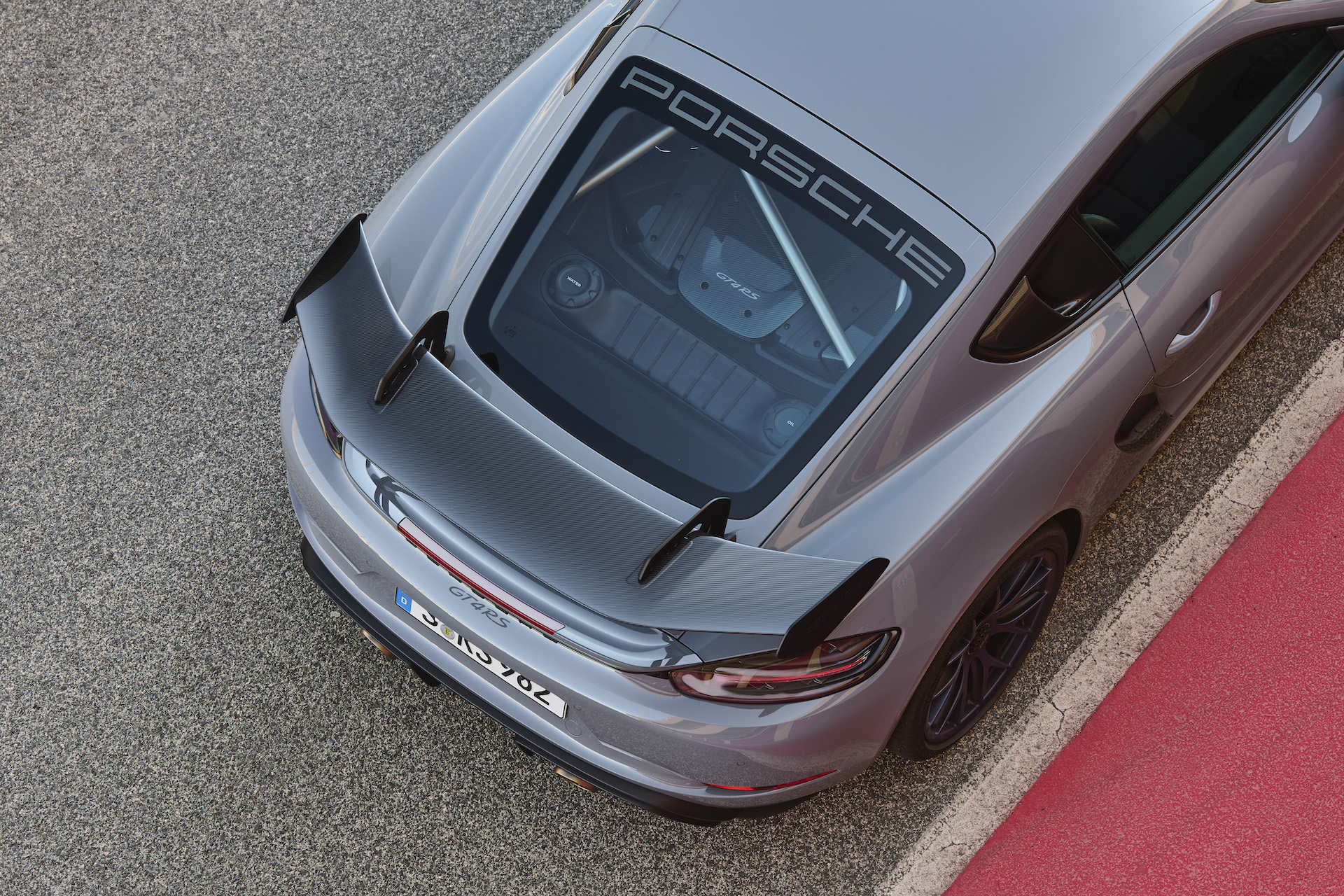UPDATE: We’ve now driven the GT4 RS, read and watch our review at the link below!
The story to here
When it came time to convince Porsche executives that the company needed to put the Cayman GT4 RS into production, Andreas Preuninger used a hardcore manual test mule with the engine from the 911 GT3 RS as his sales pitch.
The very idea of building a Cayman GT4 RS has been a controversial one within the boardroom at Stuttgart, with many thinking that a hardcore track-ready mid-engined sports car would encroach on the territory of the iconic 911 GT3.
To overcome this mental hurdle, the head of Porsche’s GT Division, Preuninger, got creative.
Instead of trying con convince the boardroom with a traditional sales pitch, he and the GT division went old-school, building a 370kW skunkworks test mule.
Speaking to media at the launch of the Cayman GT4 RS, Preuninger told the tale of how a 911 GT3 RS engine was placed into a 718 Cayman body.
“I mean, this was very exciting, but we made it on a low budget and hurry up basis,” he recalled to MOTOR.
“So we just took the GT3 RS engine, back then it had 500 horses [370kW] as well, so it was a 991.1 GT3 RS engine, which was sitting around, so it was available.
“And so, we took that one, and then we took a hammer and the scissors that could cut the sheet metal, and then we squeezed it in somehow.”

Getting the 4.0-litre naturally aspirated flat-six engine to fit was just the first task. Next was the issue of how to change gears.
Both the Cayman GT4 RS and 991.1 GT3 RS shifted ratios exclusively using a seven-speed dual-clutch PDK transmission. Preuninger’s test mule however was fitted with a proper manual gearbox.
“We coupled [the engine] to the manual gearbox of a GT4 without playing around with a reduction [in gear ratios] because it was just the only thing that we had,” he explained.
“It made it quite nicely with the gearbox, but it was way too long gear. I mean, this is an engine that revs even higher, and then the long gearing of the manual, but still, you could get an idea of the emotional side on the car, the intake noise, everything.”
Very quickly Porsche’s engineers discovered that turning a 911 GT3 RS engine around and putting into the middle of the 718 platform wouldn’t be a simple process.
One of the more significant engineering challenges that occurred even with the test car was packaging of the air intakes.
In the final Cayman GT4 RS production car, this is solved by having air intake mounted right behind the b-pillar in place of window on both sides of the vehicle, and the top of the airbox being located within the cabin itself. A design first pioneered on the GT3 RS-powered prototype.
“We mimicked these kind of funnels that are behind the ears with tubing,” Preuninger said.
“It was done really the workshop way, but still, it showed the potential and we really were fighting for the keys.
“And every CEO of all the markets that we showed the car, that was not on the agenda, so we more or less turned up and said ‘Hey, there’s something more.’
“It was a beautiful May day and they all drive all these new cars and we brought that one along and said, ‘Okay, before we finish, each one of you have a go in that one and just tell us what you think.’
“And they all came back saying, ‘What? Are you crazy?’
“And I said, ‘Yes, it’s exactly what we need for the market.’
“They said, ‘Oh, thank you.’
“You always can convince with hardware a lot better than with presentations.”

While the very first prototype GT4 RS was fitted with three-pedals, Preuninger is fan of the PDK fitted to the final production car.
“Despite having not a manual, I would prefer this car for the PDK, even though we had a manual,” he added.
Manual or auto, there’s no doubting that a screaming GT3 RS-powered test car will always be more convincing than a PowerPoint presentation, and we as performance car fans are all the better for it.
We recommend
-
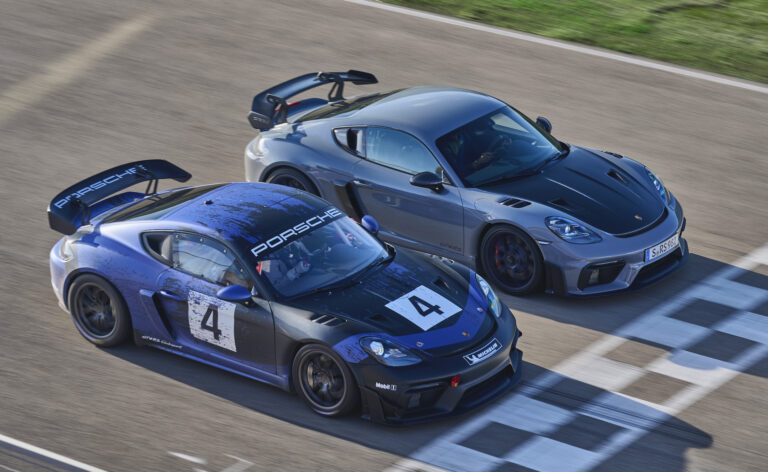 News
NewsMore hardcore Porsche variants to come from GT division
Can’t get enough Porsche GT products in your life? Andreas Preuninger has a solution
-
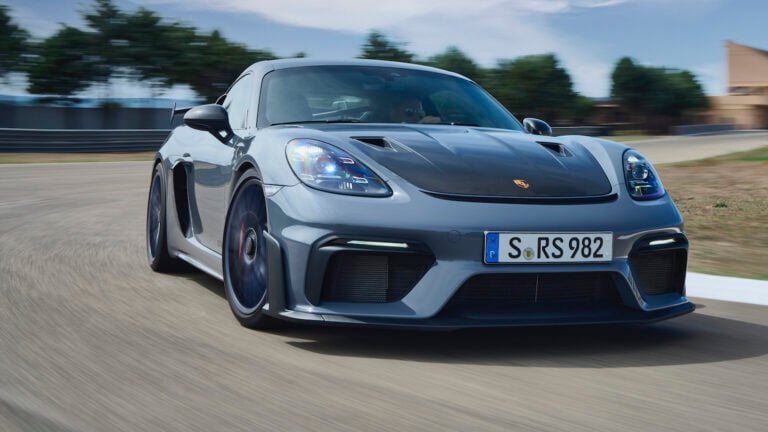 News
News2022 Porsche Cayman GT4 RS revealed, Australian pricing confirmed for 368kW hero
Porsche’s 718 Cayman GT4 RS enters GT3 territory with huge power bump
-
 News
NewsRace ready: 2022 Porsche 718 Cayman GT4 RS Clubsport debuts
Porsche reveals its new 718 Cayman GT4 RS has an even more serious side


